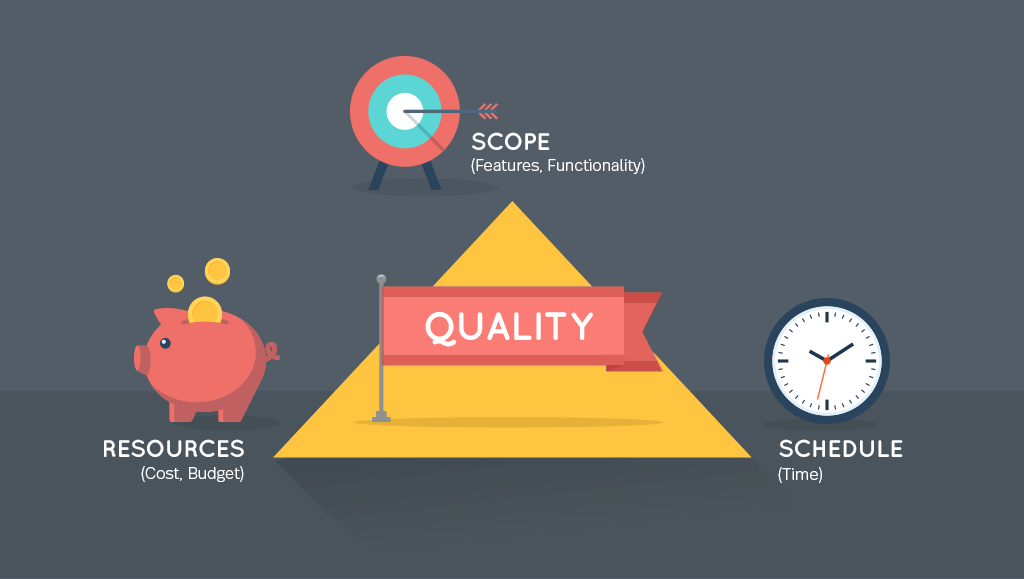
As a project manager at a mobile app development company, we talk a lot about the “iron triangle”, or “triple constraint.” Both of these terms directly relate to the scope, cost, and schedule of a project. Think about the scope, cost, and schedule as the three edges, surrounding quality. When one edge lacks the triangle becomes incomplete, resulting in quality drastically suffering. Easy enough, right? One of the easiest ways to break that triangle and for a project’s quality to be negatively impacted is through budget; it is crucial for the project manager to control budget from an internal and external perspective.
Let’s take a look at what that actually means, and how you can effectively manage your project’s budget.
Define & Forecast
This will likely occur during the discovery phase of your project, this is when your project manager discovers what your company (or your client) can afford in terms of budget. This phase goes hand-in-hand with the estimation process. Combining a variety of estimating techniques will help in order to provide the most accurate estimate. First, you must define your project and the deliverables you will provide at the end of the project. When estimating line items, we recommend getting technical expert judgment from someone who has worked on a similar project, comparing and learning from other projects, estimating core costs first (team, equipment, storage, servers, etc.) and then moving up to those more abstract items afterward.
Choose a Program for Budget Management
Thomas Carlyle says that “without tools [man] is nothing” – and in this case, it’s true. As humans, we’re prone to all sorts of errors especially when it comes to number crunching. Choosing the right tool, such as Harvest, Liquid Planner, SmartSheet, Punchtime or even a fancy Excel/Google Sheets with all sorts of formulas will do the trick! We recommend a program such as Harvest or Punchtime to track employee hours and plan for upcoming work.
Update & Review Allocations Regularly
That’s right – review, review and review again. Not even the most meticulous software project managers will be able to accurately forecast hours and keep a team on track throughout a project without a regular review of budget and resource allocations. Say one team member worked an extra 10 hours last week to finish a task.. Whoops. There goes your budget for the month! Without a regular review of schedule, scope and budget, you’ll lose track quickly. If you notice your project is regularly going over-schedule, it might be time to chat with your client and/or project stakeholders about increasing budget.
Manage Scope & Schedule
There is no better way to blow a budget than by scope creep and consequential schedule changes. Project managers must be vigilant from the beginning of the project, and they should understand the client’s vision and requirements for the project. Project managers should include a process for any changes in scope, if any changes occur the project manager should communicate to the client how any changes will impact the budget. If you monitor scope and the project schedule, you will be more in control of your overall budget.
Communicate to your Project Team
Communication is KEY to any piece of agile project management., communicating allows project managers to set and maintain expectations so that there are no surprises. If you are going to be a bit over budget due to client requests, new features, etc., you must communicate to avoid a surprise when it comes to invoicing. If your team is consistently working over-time, meet with your project team to find out the root of the problem. You’ll be amazed at what can come out of a simple conversation with your project team. By your project team being in the same page in terms of communication, stakeholders of the project will feel they’re in the loop when it comes to budget- and there will be no surprises.
These are just suggestions that some of our project managers have found to be helpful in terms of keeping a project on budget, feel free to tell us about your agile project management tips!

